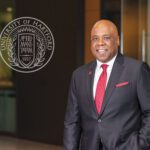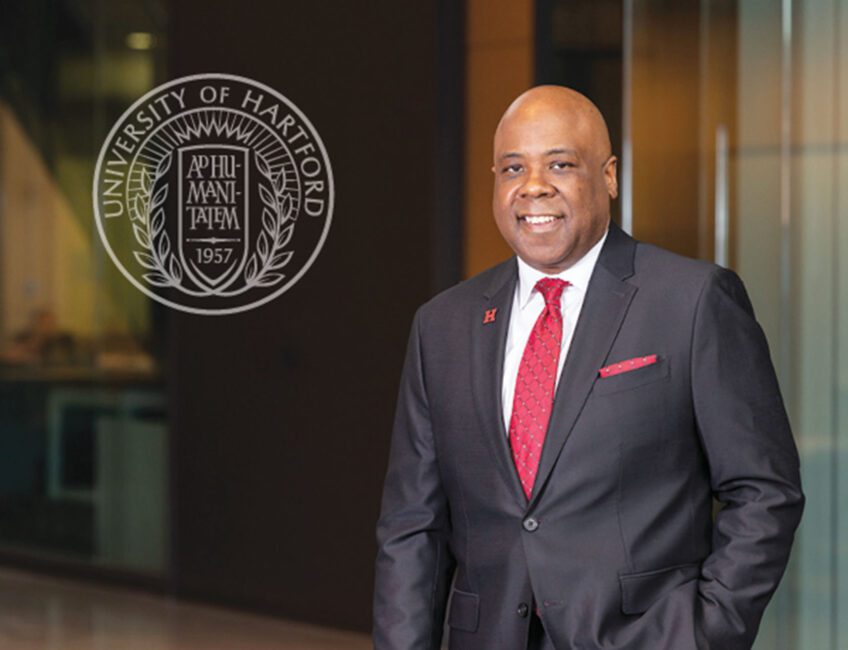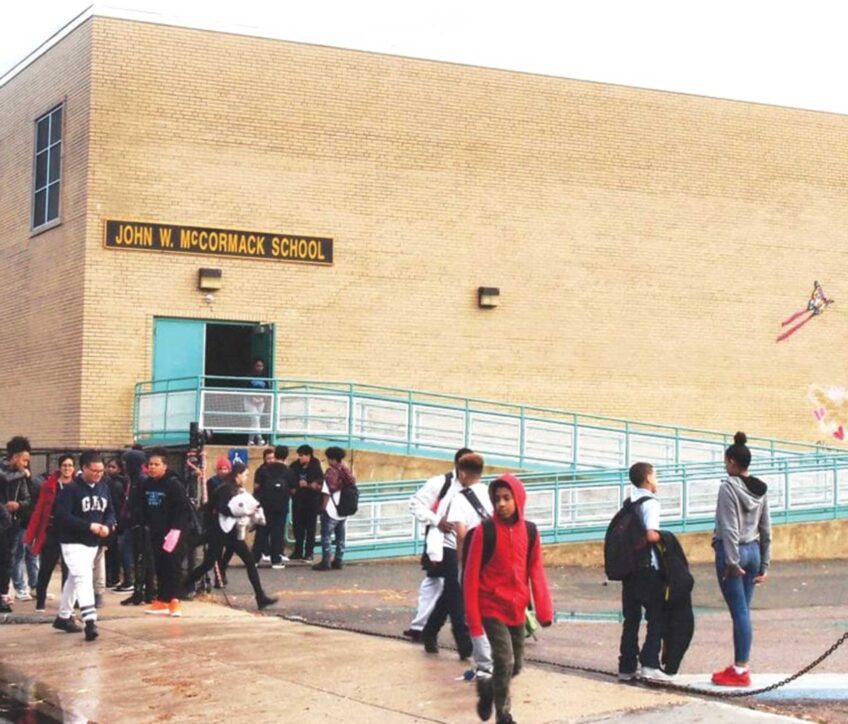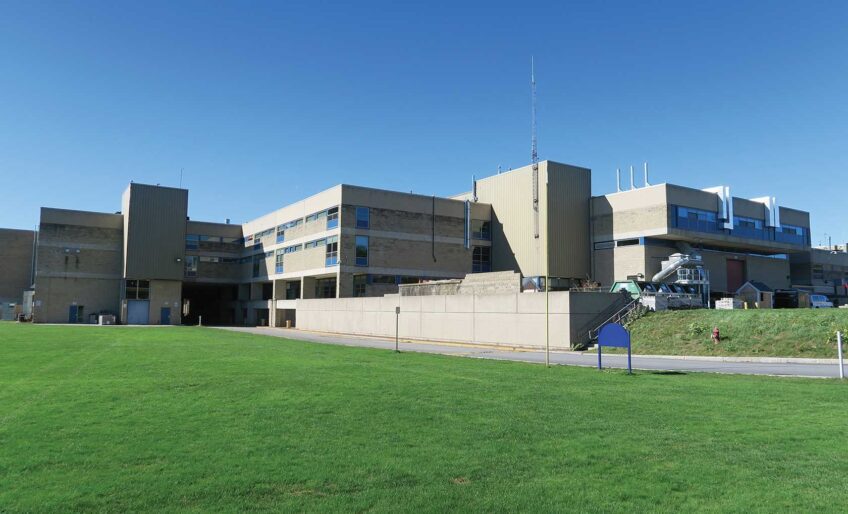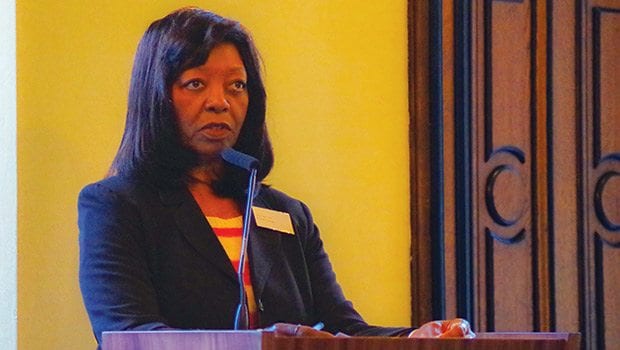
Scholars, representatives of nonprofits and activists from throughout the African diaspora gathered at the University of Edinburgh in Scotland earlier this month to discuss the growing movement to secure reparations from the nations that participated in and profited from the trans-Atlantic slave trade.
Co-sponsored by the University of Edinburgh and Boston’s Wheelock College, the conference, “Repairing the Past, Imagining the Future: Reparations and Beyond” is the largest gathering thus far of advocates seeking acknowledgement, apologies and restitution for the harm caused to victims of slavery.
UMass Boston associate professor Jemadari Kamara was there.
“It was very impactful, both in the diverse nature of folks who were there and the organizations they were representing,” said Kamara, who directs the school’s Center for African, Caribbean and Community Development. “The conversation was rich and diverse.”
While the topic of reparations has been discussed in the United States since the 18th century, the movement has gained momentum in the last decade, with the U.S. House of Representatives passing a resolution in 2008 apologizing for American slavery and subsequent discriminatory laws. That apology stands as the movement’s singular victory so far.
No apology
While blacks have not received a formal apology from a head of state, other groups have. In 1988, President Ronald Reagan apologized to Japanese Americans for their internment during World War II. This year, Norway’s Prime Minister Erma Solberg apologized to the Roma people for their expulsion during World War II. Various European nations have apologized to Jews for their role in the Holocaust.
The Caribbean Community and Common Market (CARICOM), a coalition of 15 Caribbean nations, put an apology for slavery at the top of its 10-point list of demands for reparations.
“An apology would signify an important first step toward making amends,” said Wheelock College President Jackie Jenkins-Scott, who also was at the conference. “If you don’t have an apology, it’s hard to get forgiveness and reconciliation.”
Jenkins-Scott said the reparations movement is as much focused on compelling former slave-holding states to make amends for slavery as it is on finding solutions for the continuing legacy of racism and injustice. In the United States, inequalities in the criminal justice system and in housing and jobs, along with disparities affecting wealth and educational opportunity, have their roots in the ideology of racism that made slavery possible.
“The legacy of slavery is racism,” said Wheelock professor Joyce Hope Scott, a co-organizer of the Edinburgh conference. “It’s an institutionalized ideology. It’s the ongoing result of slavery.”
Demands
Among the other demands on the CARICOM list are voluntary repatriation, support for cultural institutions, illiteracy eradication, support for psychological rehabilitation and debt cancellation.
“Reparations for slavery, and the century of racial apartheid that replaced it into the 1950s, resonate as a popular right today in Caribbean communities because of the persistent harm and suffering linked to the crimes against humanity under colonialism,” said Sir Hillary Beckles, chairman of CARICOM’s Commission on Reparations, during a conference last year. Beckles, who is principal and vice chancellor of the University of the West Indies, also delivered an address at the Edinburg conference.
UMass’s Kamara said CARICOM’s representation at the conference was an important milestone in the reparations movement.
“Up to this time, the vast majority of people involved in this movement have come from academia and non-governmental organizations,” he said.
In the United States, thus far there is no consensus on the exact form reparations would take. Jenkins-Scott said the notion of individual payments embodied in the 19th century “40 acres and a mule” concept is off the table.
“Nobody is talking about people getting individual checks,” she said. “People are talking about development funds. But fundamentally, it’s not an economic question. It’s about the political will for society to acknowledge the injustice that’s occurred.”
In some places, however, the economic side of the equation still dominates.
French President Francois Hollande sparked optimism in a visit to Haiti earlier this year when he promised his country would “settle the debt that [the French] have with Haiti.” Many on the impoverished island thought Hollande was referring to the $90 million Haiti was forced to pay to the French beginning in 1825 as compensation for the lands and property Haitians took from French colonists during their war for independence — a sum that would equal $17 billion in 2015 dollars. Hollande’s aides quickly clarified that Hollande was referring to a “moral debt.”
France did forgive $77 million in debt Haiti incurred after its devastating 2010 earthquake.
Haitian president Michel Martelly told Hollande the legacy of France’s slavery and aggression remains an issue for the country.
“No negotiation, no compensation can repair the wounds of history that still mark us today,” Martelly reportedly told Hollande. “Haiti has not forgotten, but Haiti is not stubborn.”
Whether or not Hollande issues a formal apology, Jenkins-Scott says she is optimistic the U.S. and Europe eventually will reconcile their legacy of racism.
“I left the conference optimistic that this topic of reparations — and the many forms it takes — is not going to go away,” Jenkins Scott said. “I actually left much more hopeful that it can happen.”
In addition to scholars from the United States and the Caribbean, activists from England, Germany, Holland and France attended the meeting.
Joyce Hope Scott said the conference helped many of the individual activists gain a deeper understanding of the reparations movement.
“It is so important for all of us to be reminded that we are not the only ones who are big thinkers committed to social change,” she said. “Whenever you’re in a conference like this you get a much broader perspective.”

